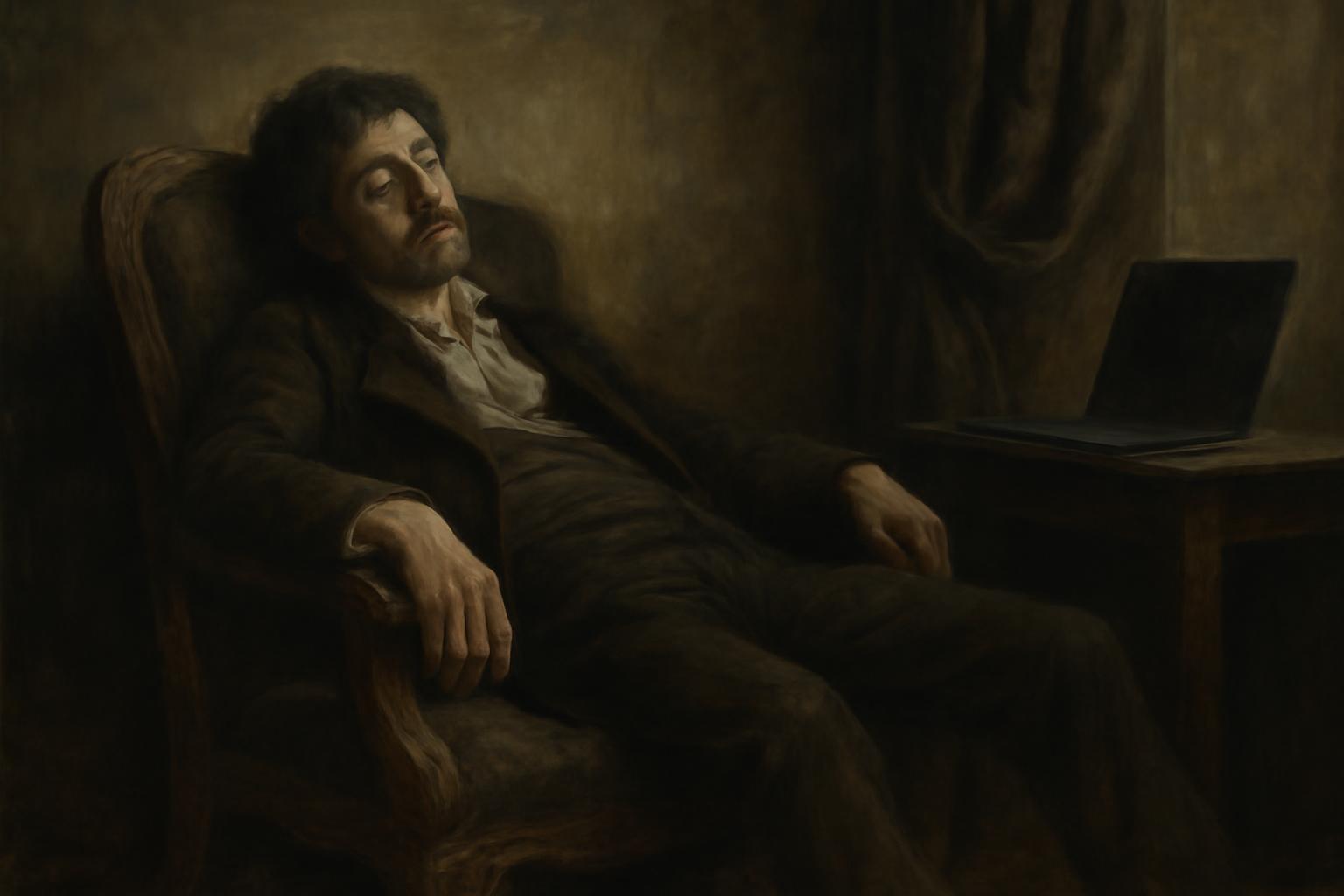In this waning light of an age so feverish for progress, the people sit—ten hours, chained to their own devices, immobile spectres in glass and steel offices, transfixed at screens that flicker with borrowed purpose. Each minute accumulated, a silent tribute to inertia. Fifteen more minutes, year upon year: the glacier of stillness creeping inexorably across a once-vibrant continent. Let it be noted, as Hesiod might, that decline seldom announces itself with thunder, but swells in soft increments, remorseless as fate.
We find ourselves, like the characters in a Greek tragedy, stricken with hamartia without the aid of gods—victims, rather, of spiritual enervation and technological paralysis. The body, that noble temple, is now a mere vessel for fleeting sensation, atrophied by endless commutes and cathode-lit distractions. Every hour that slips by, slumped in the digital agora, betrays the Dionysian energies once coursing through the veins of this land. And the numbers—so precise, so damning—speak of a nation not rising to meet the spirit, but passively plumbing the depths of creaturely comfort.
The lament deepens: for what shall it profit one to abstain from the occasional vice of smoke or drink, when the essential dynamism of being, the will to overcome, is quietly extinguished by hours of passivity? For most, discipline is squandered in fragmented attempts—endurance without strength, or strength without endurance—a Sisyphean labor, condemned never to find completion. Only a scant handful ascend to the ideal of health, a mere two souls in a hundred: a statistical residue of ancient virtue, pale and beleaguered.
“Man is a rope stretched between animal and the Übermensch,” wrote Nietzsche—yet what distance do we traverse now, when the rope sags under our own listless weight? The heroic ideal erodes, ambitions shrink, and culture—the West’s exquisite, fragile bloom—yields to a bleak utilitarianism, a monochrome life of risk-managed existence. The tragic wisdom of the Greeks forewarned that hubris invites nemesis; yet our greatest arrogance is to believe that there is no price for our withdrawal from striving, from the bodily affirmation of life.
In these statistics, one hears the slow toll of a funeral bell for the Western spirit, a culture losing itself to comfort, the last echoes of greatness fading in the hum of the sedentary hive. Ours is a malaise more insidious than plague or war: the tranquil, anesthetizing rot of modernity, whose promise is an eternal Now from which all glory, and indeed all suffering—the wellspring of art and wisdom—has been driven out.
